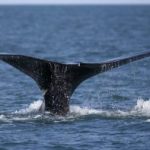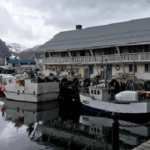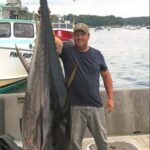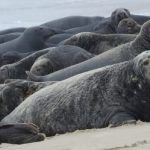Daily Archives: June 15, 2017
‘They’re not relevant’: Fisheries union boss says Ryan Cleary desperate for a headline
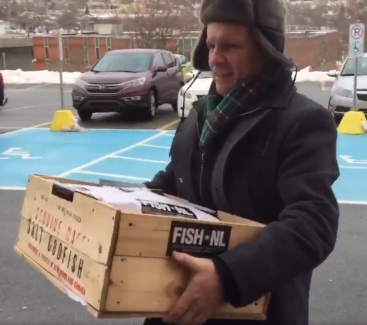 It’s been nine months since a bare knuckles battle began over the right to represent inshore harvesters in Newfoundland and Labrador, and both sides say they want a deciding round to start soon. The upstart Federation of Independent Sea Harvesters of Newfoundland and Labrador (FISH-NL) is waging a fight to bust up the powerful Fish, Food and Allied Workers union (FFAW), and there’s no end in sight to this very public feud. FISH-NL has applied to the labour relations board for a certification vote so harvesters can decide once and for all who they want to represent their interests. But that process has dragged on for months, with the board only saying that it’s an ongoing matter. “We have a situation where you’ve got 2,500 harvesters who are connected to FISH-NL who are invisible to the FFAW,” said FISH-NL president Ryan Cleary. click here to read the story 22:47
It’s been nine months since a bare knuckles battle began over the right to represent inshore harvesters in Newfoundland and Labrador, and both sides say they want a deciding round to start soon. The upstart Federation of Independent Sea Harvesters of Newfoundland and Labrador (FISH-NL) is waging a fight to bust up the powerful Fish, Food and Allied Workers union (FFAW), and there’s no end in sight to this very public feud. FISH-NL has applied to the labour relations board for a certification vote so harvesters can decide once and for all who they want to represent their interests. But that process has dragged on for months, with the board only saying that it’s an ongoing matter. “We have a situation where you’ve got 2,500 harvesters who are connected to FISH-NL who are invisible to the FFAW,” said FISH-NL president Ryan Cleary. click here to read the story 22:47
Interior secretary set to visit Boston as enviros launch marine monument campaign
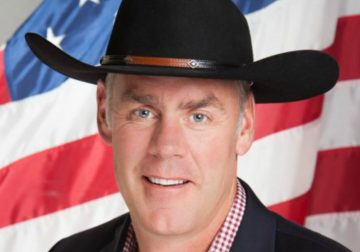 When Interior Secretary Ryan Zinke visits the Boston area on Friday, environmentalists plan to greet him by rallying for the preservation of national monuments that are under review by the Trump administration. The former Montana congressman has an 11 a.m. press event at a Legal Sea Foods location, according to his office. The Bay State visit could also afford the interior secretary a chance to meet with the state’s top Republican, Gov. Charlie Baker, although nothing has been announced. The fishing industry opposed President Barack Obama’s 2016 designation of the Northeast Canyons and Seamounts Marine National Monument on a roughly 4,900 square-mile area south of Cape Cod. According to a Zinke press aide, the secretary on Friday will meet with a U.S. Fish and Wildlife Service officials and officials from the New England Aquarium about marine wildlife around the monument. The secretary will then attend a roundtable meeting with lobstermen and fishermen about the impact of the monument designation on their industry. click here to read the story 18:36
When Interior Secretary Ryan Zinke visits the Boston area on Friday, environmentalists plan to greet him by rallying for the preservation of national monuments that are under review by the Trump administration. The former Montana congressman has an 11 a.m. press event at a Legal Sea Foods location, according to his office. The Bay State visit could also afford the interior secretary a chance to meet with the state’s top Republican, Gov. Charlie Baker, although nothing has been announced. The fishing industry opposed President Barack Obama’s 2016 designation of the Northeast Canyons and Seamounts Marine National Monument on a roughly 4,900 square-mile area south of Cape Cod. According to a Zinke press aide, the secretary on Friday will meet with a U.S. Fish and Wildlife Service officials and officials from the New England Aquarium about marine wildlife around the monument. The secretary will then attend a roundtable meeting with lobstermen and fishermen about the impact of the monument designation on their industry. click here to read the story 18:36
Cause of Action Digs In: Northeast Canyons and Seamounts Designation: Some Stakeholders Are More Equal Than Others
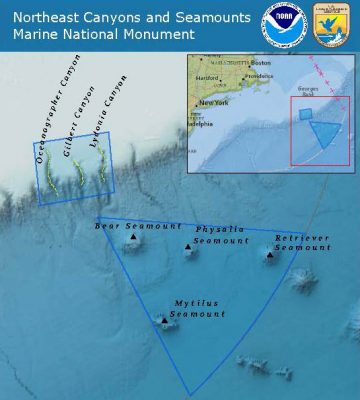 This week we review the procedural history of the Northeast Canyons and Seamounts Marine National Monument (“Atlantic Monument” or “Monument”) designation, which was made by President Obama on September 15, 2016 (“Proclamation”), and show that certain, privileged, non-governmental entities were granted access to detailed information on the forthcoming monument and allowed input into the designation, while other stakeholders—notably those with specific legal authority, such as Regional Fishery Councils—were denied input and access.,,, The following history, derived from the partial responses to CoA Institute’s FOIA requests and other publicly available documents, is illustrative: In March 2015, the Conservation Law Foundation (“CLF”) and Natural Resources Defense Council (“NRDC”),,, click here to read the story. Hang onto your Sou’wester. 17:53
This week we review the procedural history of the Northeast Canyons and Seamounts Marine National Monument (“Atlantic Monument” or “Monument”) designation, which was made by President Obama on September 15, 2016 (“Proclamation”), and show that certain, privileged, non-governmental entities were granted access to detailed information on the forthcoming monument and allowed input into the designation, while other stakeholders—notably those with specific legal authority, such as Regional Fishery Councils—were denied input and access.,,, The following history, derived from the partial responses to CoA Institute’s FOIA requests and other publicly available documents, is illustrative: In March 2015, the Conservation Law Foundation (“CLF”) and Natural Resources Defense Council (“NRDC”),,, click here to read the story. Hang onto your Sou’wester. 17:53
Feds (No EDF and Pew) complain new Red Snapper season will hurt species’ recovery
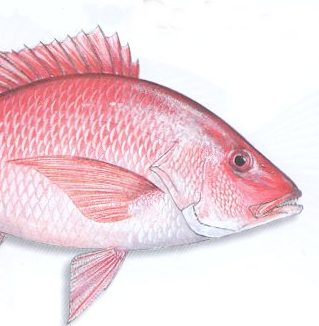 The U.S. Commerce Department says recreational anglers in the Gulf of Mexico will have 39 more days to fish federal waters for red snapper,,,However, an environmental group and a charter captains’ association estimate that private anglers will take nearly triple their allocated 3.4 million-pound (1.5 million kilogram) quota of the sport and panfish under the plan, potentially canceling next year’s recreational season entirely.,,“The current system is failing private anglers and they deserve a fix,” Mike Jennings, president of the Charter Fisherman’s Association said in a prepared statement.,,, Earlier Wednesday, his group and the Environmental Defense Fund had emailed Commerce Secretary Wilbur Ross, asking him to delay any decision until he had good scientific estimates of the likely catch. click here to read the story 16:45
The U.S. Commerce Department says recreational anglers in the Gulf of Mexico will have 39 more days to fish federal waters for red snapper,,,However, an environmental group and a charter captains’ association estimate that private anglers will take nearly triple their allocated 3.4 million-pound (1.5 million kilogram) quota of the sport and panfish under the plan, potentially canceling next year’s recreational season entirely.,,“The current system is failing private anglers and they deserve a fix,” Mike Jennings, president of the Charter Fisherman’s Association said in a prepared statement.,,, Earlier Wednesday, his group and the Environmental Defense Fund had emailed Commerce Secretary Wilbur Ross, asking him to delay any decision until he had good scientific estimates of the likely catch. click here to read the story 16:45
CATCH SHARES – NOT A VIABLE OPTION FOR THE NORTHEAST
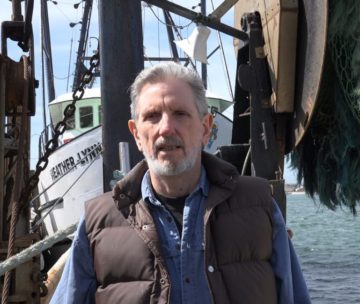 Theoretical constructs that might hold together logically and appear sound often quickly disintegrate in the atmosphere outside their esoteric bubble. This was certainly the case for catch shares or transferable quota management in the New England groundfishery. Catch shares in New England disintegrated almost upon entry. What are catch shares and where did they come from? Catch shares or the commoditization of the fish poundage to be caught, or the ownership of the “right” to harvest a certain portion of the government managers’ scientifically sanctioned total yearly catch, is a construct of “free market environmentalism” theory. The “enviropreneurs” or “enviro-capitalists” claim that ownership equals good stewardship, equals profitability. This privatization push is actually an idea of economics, claiming production “efficiency”, and not one of fishery conservation—although the sales pitch promotes this scheme as the answer to “overfishing”, and just in the nick of time. Click here to read the article 14:58
Theoretical constructs that might hold together logically and appear sound often quickly disintegrate in the atmosphere outside their esoteric bubble. This was certainly the case for catch shares or transferable quota management in the New England groundfishery. Catch shares in New England disintegrated almost upon entry. What are catch shares and where did they come from? Catch shares or the commoditization of the fish poundage to be caught, or the ownership of the “right” to harvest a certain portion of the government managers’ scientifically sanctioned total yearly catch, is a construct of “free market environmentalism” theory. The “enviropreneurs” or “enviro-capitalists” claim that ownership equals good stewardship, equals profitability. This privatization push is actually an idea of economics, claiming production “efficiency”, and not one of fishery conservation—although the sales pitch promotes this scheme as the answer to “overfishing”, and just in the nick of time. Click here to read the article 14:58

FFAW denies allegation of conflict of interest in relation to Hebron tow-out
The province’s fisheries union is scoffing at an allegation from a rival that it rewarded an influential enterprise owner by giving him a contract to escort the Hebron platform to sea. The Fish, Food and Allied Workers’ union is also defending its relationship with the oil and gas industry.,, The latest flare-up in tension between the FFAW and the Federation of Independent Seafood Harvesters of Newfoundland and Labrador (FISH-NL) relates to the recent tow-out from Trinity Bay of the Hebron platform. The two groups are locked in a bitter feud, with FISH-NL fighting to replace the FFAW as the official bargaining agent for inshore harvesters. click here to read the story 12:38:
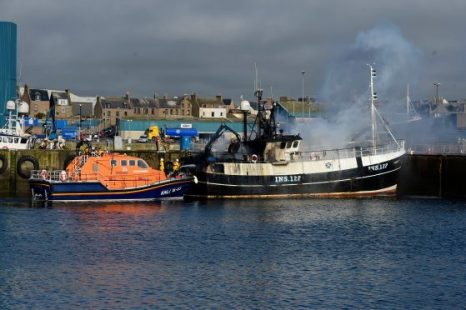
Owner of fire-stricken fishing vessel hits out at safety report findings
The owner of a fishing boat destroyed by a fire has accused safety chiefs of criticising his crew for saving their own lives by escaping from the vessel. Three trawlermen on the Ardent II scrambled to the safety of the Peterhead quay only after one spotted smoke when he got up at 5am to use the toilet. The Marine Accident Investigation Branch (MAIB) launched an investigation into the incident and published its findings yesterday. The MAIB found the crew might have saved the 131ft vessel if they had fought the flames rather than leaping ashore. click here to read the story 12:14
Fishermen watch, wait, work, while Alaska Legislature in limbo
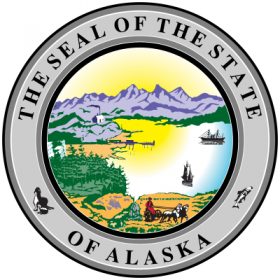 An Alaska government shutdown is a fisheries shutdown. Commercial, sport, gillnet, dipnetters and subsistence fishing would all be impacted in devastating ways if a fiscal year 2018 budget isn’t approved by the Alaska Legislature by July 1. United Fishermen of Alaska, which represents 33 Alaska commercial fishing organizations, is taking the stance that people should “work on the season,” said President Jerry McCune. “As it gets closer to the deadline, we’ll get more worried and put the pressure on the Legislature to fund Fish and Game at least, if they’re not coming up with a budget,” he said. The Alaska Department of Fish and Game’s 2018 fiscal year budget of $200.16 million was agreed upon by both the House and the Senate in April. Of that, commercial fisheries were allotted $70.77 million. click here to read the story 11:34
An Alaska government shutdown is a fisheries shutdown. Commercial, sport, gillnet, dipnetters and subsistence fishing would all be impacted in devastating ways if a fiscal year 2018 budget isn’t approved by the Alaska Legislature by July 1. United Fishermen of Alaska, which represents 33 Alaska commercial fishing organizations, is taking the stance that people should “work on the season,” said President Jerry McCune. “As it gets closer to the deadline, we’ll get more worried and put the pressure on the Legislature to fund Fish and Game at least, if they’re not coming up with a budget,” he said. The Alaska Department of Fish and Game’s 2018 fiscal year budget of $200.16 million was agreed upon by both the House and the Senate in April. Of that, commercial fisheries were allotted $70.77 million. click here to read the story 11:34
Gray seals are making a huge comeback on Cape Cod (where there are no longer any Cod!)
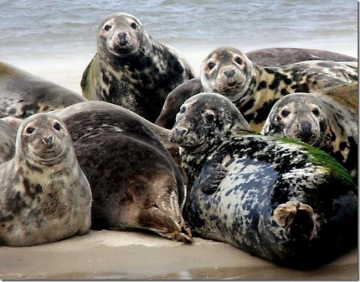 For nearly a hundred years, New England’s gray seals had a bounty on their heads. Maine and Massachusetts paid people to kill them, because they depleted fishing stocks. They were also hunted for their meat and pelts. By 1973—a year after the Marine Mammal Protection Act made it illegal to systematically kill the animals—a census estimated there were only 30 gray seals left along the entire coast of Maine. Since then, Canada’s gray seals have returned to recolonize the east coast of the U.S.,,, Now, in a study published in Bioscience, researchers have combined Google Earth images and data from tagged seals to make a more precise estimation of the population.,, “Our technology-aided aerial survey, which used Google Earth imagery in conjunction with telemetry data from tagged animals, suggests the number is much larger—between 30,000 and 50,000.” Not everyone is happy with the pinniped’s population explosion—particularly fisherman, who see them as competition for fish stocks. In recent years, some groups have advocated for culling the number of gray seals. Johnston says that not only would that be illegal, but it would also be premature. “We know almost nothing about what gray seals eat, how and where they forage,,, click here to read the story 10:48
For nearly a hundred years, New England’s gray seals had a bounty on their heads. Maine and Massachusetts paid people to kill them, because they depleted fishing stocks. They were also hunted for their meat and pelts. By 1973—a year after the Marine Mammal Protection Act made it illegal to systematically kill the animals—a census estimated there were only 30 gray seals left along the entire coast of Maine. Since then, Canada’s gray seals have returned to recolonize the east coast of the U.S.,,, Now, in a study published in Bioscience, researchers have combined Google Earth images and data from tagged seals to make a more precise estimation of the population.,, “Our technology-aided aerial survey, which used Google Earth imagery in conjunction with telemetry data from tagged animals, suggests the number is much larger—between 30,000 and 50,000.” Not everyone is happy with the pinniped’s population explosion—particularly fisherman, who see them as competition for fish stocks. In recent years, some groups have advocated for culling the number of gray seals. Johnston says that not only would that be illegal, but it would also be premature. “We know almost nothing about what gray seals eat, how and where they forage,,, click here to read the story 10:48
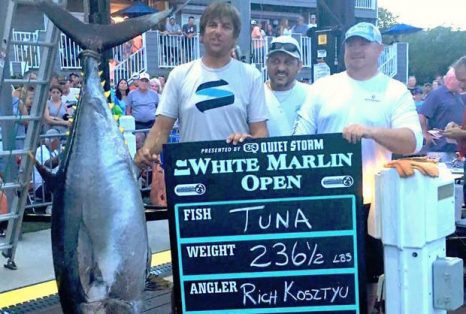
Judge strips $2.8M tournament prize from Fla. fisherman
A federal judge on Wednesday ruled that a Florida fisherman is not entitled to the $2.8 million in prize money he won in a Maryland fishing tournament last summer. Phillip Heasley and the crew of his Naples, Fla.-based boat, the Kallianassa, put their fishing lines in too early, violating the rules of the White Marlin Open in Ocean City, Md., the judge ruled. Three New Jersey men – Trenton police sergeant Brian Suschke, Trenton firefighter Rich Kosztyu and Ocean County boat owner Damien Romeo – could land $2.3 million of the money, but the judge’s decision did not yet rule on the awarding of the money. Because the matter is still technically pending, with a decision expected on the money, Suschke declined further comment, except to say the three men are “happy to have cleared one legal hurdle.” click here to read the story 09:49
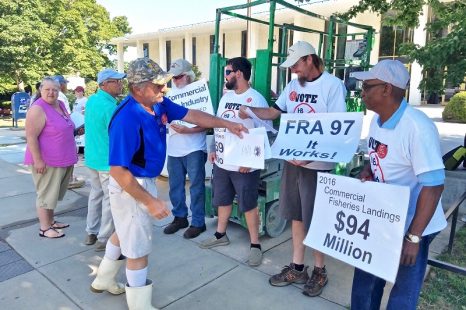
Watermen, locals descend on Raleigh to fight fisheries bill – The true toll of a treacherous bill on commercial fishing
Hundreds of commercial fishermen and their families, along with local government and agency leaders spent Wednesday walking the halls of the North Carolina Legislative Building in an effort to battle a bill they say could shut down the entire industry. House Bill 867 would attempt to rewrite the Fisheries Reform Act, which is the body of statutes that provides the framework for fisheries management in North Carolina. The event was organized by North Carolina Watermen United and the North Carolina Fisheries Association.,, But just as opponents were arriving on Jones Street in Downtown Raleigh, many wearing white T-shirts and red buttons calling for a no vote, word trickled out that the legislation was being amended. click here to read the story 08:47
The true toll of a treacherous bill on commercial fishing – Sandy Semans Ross – If he had bothered to come, I wanted to explain what is obvious to me but apparently less so to others. But he didn’t come, so I share my words with you. I would have told him that the coastal economy as a whole is unique because of its proximity to the ocean and the sounds. click here to read the story



































